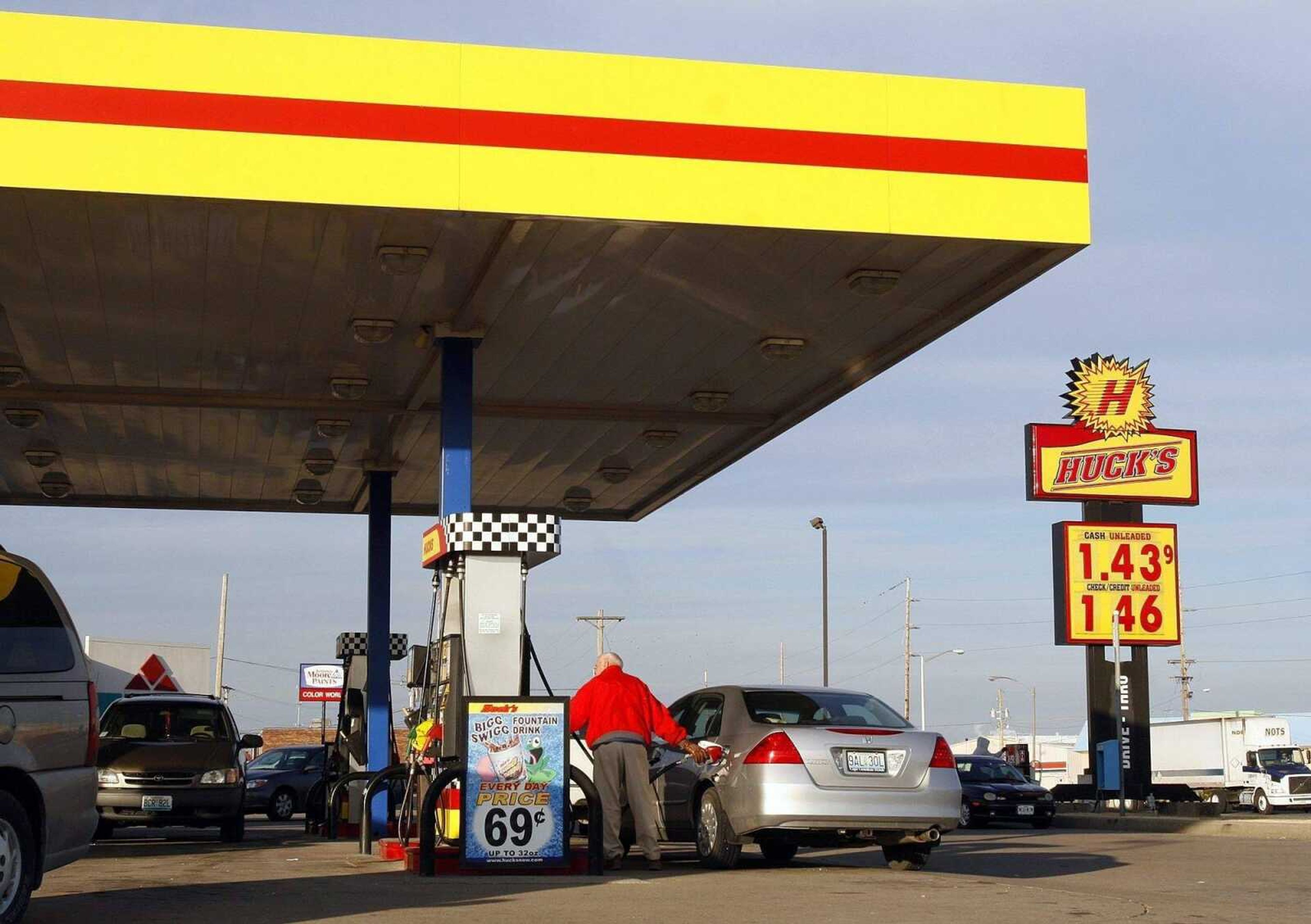Gas prices continue to fluctuate in Southeast Missouri
While Americans continue to see a decrease in the price of a gallon of regular unleaded gasoline, prices for fuel at some stations in Southeast Missouri are rising while others remain well below the national average. The website gasbuddy.com reported that on Monday afternoon a gallon of unleaded gasoline could be found for as low as $1.34 in Miner, Mo., to as high as $1.79 in Cape Girardeau. The national average for gas was $1.65 per gallon...
While Americans continue to see a decrease in the price of a gallon of regular unleaded gasoline, prices for fuel at some stations in Southeast Missouri are rising while others remain well below the national average.
The website gasbuddy.com reported that on Monday afternoon a gallon of unleaded gasoline could be found for as low as $1.34 in Miner, Mo., to as high as $1.79 in Cape Girardeau. The national average for gas was $1.65 per gallon.
Economist Bruce Domazlicky said the recent increase in gas is due mostly to an increase in demand as travel by motor vehicle picks up around the holiday season. He said increases are likely to be modest because of a slowing economy and a decreased demand for oil worldwide.
"As long as the worldwide economy remains sluggish, gasoline prices are not expected to rise much," said Domazlicky, a professor at Southeast Missouri State University. "Given current conditions -- unless there are even larger cuts in supply -- prices are likely to remain below two dollars per gallon for some time yet."
Factors in the cost of gas
The Organization of Petroleum Exporting Countries announced last week it is cutting production by 2.2 million barrels a day, which Domazlicky thinks will cause a larger increase in gas prices eventually.
The price of crude oil was $39.92 by the close of floor trading Monday on the New York Mercantile Exchange. Prices have decreased by about 73 percent from the record price of $147.27 per barrel on July 11.
The latest Oil Market Report released Dec. 11 predicted global consumption this year will decrease by about 200,000 barrels daily, or 0.2 percent, to 85.8 million barrels each day. That would be the first drop in demand for oil in 25 years.
The highest price for a gallon of gasoline was July 17, when the nationwide average was $4.11 a gallon and in Missouri was around $3.90.
Retail prices for gasoline include the cost of delivery as well as state and federal taxes, which add 35.4 cents to the price of each gallon.
Prices in flux
Gas had reached as low as $1.33 in the early morning hours Wednesday in Cape Girardeau, but increased by as much as 12 cents at some stations shortly after 11:30 a.m. On Monday afternoon prices in the city ranged from $1.39 to $1.54, though UKwick Stop, 1702 Broadway, was selling gas for $1.79, the highest in Missouri, according to gasbuddy.com.
The lowest price for gasoline in Jackson was reportedly nine cents per gallon more expensive than in Cape Girardeau. In Jackson, the cost for a gallon of regular unleaded gasoline ranged between $1.48 and $1.53.
Gas could be found for $1.45 in Sikeston, Mo., and $1.47 in Scott City. Gas fluctuated between $1.40 and $1.49 in Fredericktown, Mo., $1.45 and $1.49 in Benton, Mo., and $1.45 to $1.59 in Poplar Bluff, Mo.
Still, Missouri ranks among the cheapest states to fill up at the pump, at an average of $1.49 per gallon. Wyoming was the cheapest overall at $1.38, while Hawaii was the most expensive at $2.47.
Uncertain future
Missouri AAA spokesman Mike Right said his office has seen a noticeable increase in the past few days, but he believes the increase may be near its end, at least for now.
"Most retailers are getting their last batch of the higher-priced fuel, and that may be why you're seeing an increase in some stations in your area," Right said. "We're seeing fits and starts in the prices. The market's in a state of flux right now and you'll continue to see fluctuations that are inexplicable."
Right declined to make predictions on how high gasoline prices could go in the future. "But I will say you'll probably not see anywhere close to four dollars a gallon like we had earlier in the summer," he said.
Dave Lemmon, who owns Basic Fuel stations throughout Southeast Missouri, also was uncertain about the future of gasoline prices.
"It's a wait and see game," Lemmon said. "We just react to what the suppliers do. We really don't have much control over how much we can lower or raise the price for gasoline."
Right said the low gas prices will have a minimal, if any, effect on holiday travel. AAA released a report last week that predicted fewer motorists will travel 50 miles or more by car this year to arrive at their destination. More than 52.4 million Americans, or 82 percent of all holiday travelers, intend to travel by automobile, a 1.2 percent decrease from the 53 million people who drove in 2007.
"While fuel may have decreased lately, it's too late to make any kind of change in travel plans, as airline tickets were booked several months ago when gas was at its peak," Right said. "Those traveling by motor vehicle will be paying less to reach their destination. But we won't see any kind of noticeable decrease."
bblackwell@semissourian.com
388-3628
Does this affect you?
Have a comment?
Log on to semissourian.com
Connect with the Southeast Missourian Newsroom:
For corrections to this story or other insights for the editor, click here. To submit a letter to the editor, click here. To learn about the Southeast Missourian’s AI Policy, click here.









